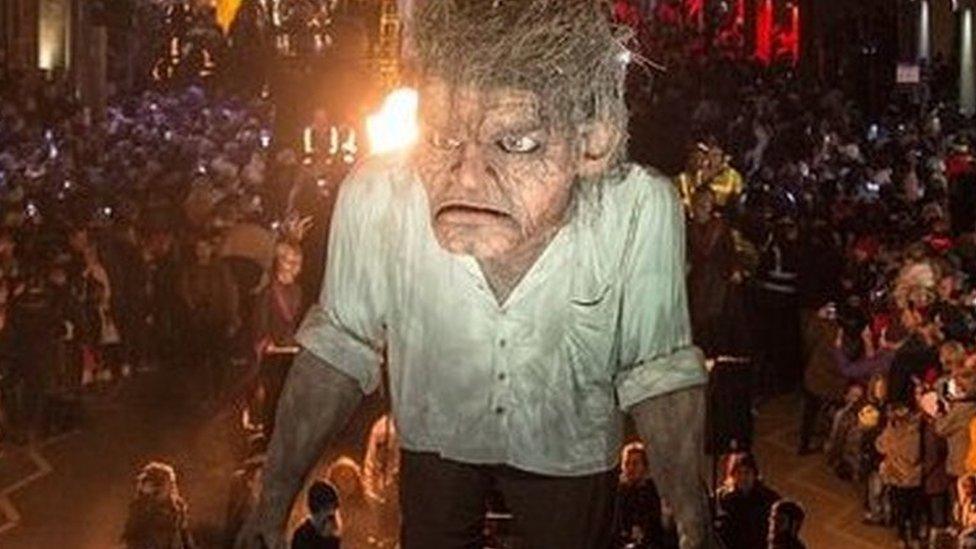City of Culture: Did Hull 2017 create a lasting legacy?
- Published
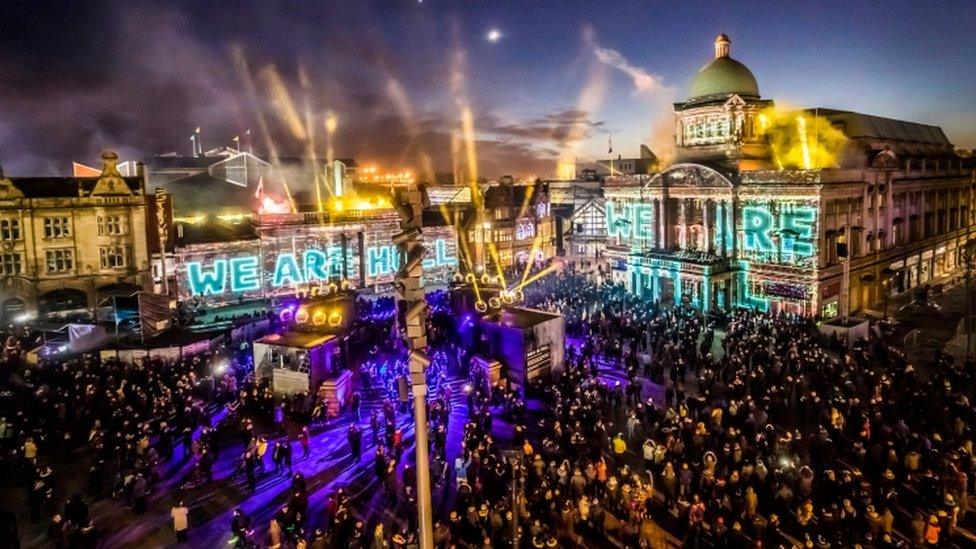
Made in Hull in Queen Victoria Square provided a spectacular opening for the 2017 year of events
It's 10 years to the day since Hull was crowned Britain's City of Culture 2017, bringing thousands of events and millions of people to East Yorkshire. But a decade on, what lasting impact did it leave behind on the city and those who live there?

On 20 November 2013, then culture secretary Maria Miller's announcement sparked great joy and excitement in the city of 260,000 people - with Hull beating Leicester, Dundee and Swansea Bay to the title.
It prompted then Prime Minister David Cameron - who has recently returned to the cabinet - to reference William Wilberforce, Philip Larkin and The Housemartins in the Commons, adding he "was sure it'd be a huge success".
Hull 2017 raised more than £32m of investment to put on about 3,000 events seen by more than five million people.
According to a University of Hull study, more than half of audiences came from the city, with more than 95% of residents attending at least one cultural activity during the year.
Many audiences were new to Hull's cultural offer, with more than 60% of ticket-buying audiences first time bookers.
Back then everyone spoke about the "L" word - legacy. Has the buzz word of Hull 2017 lasted?
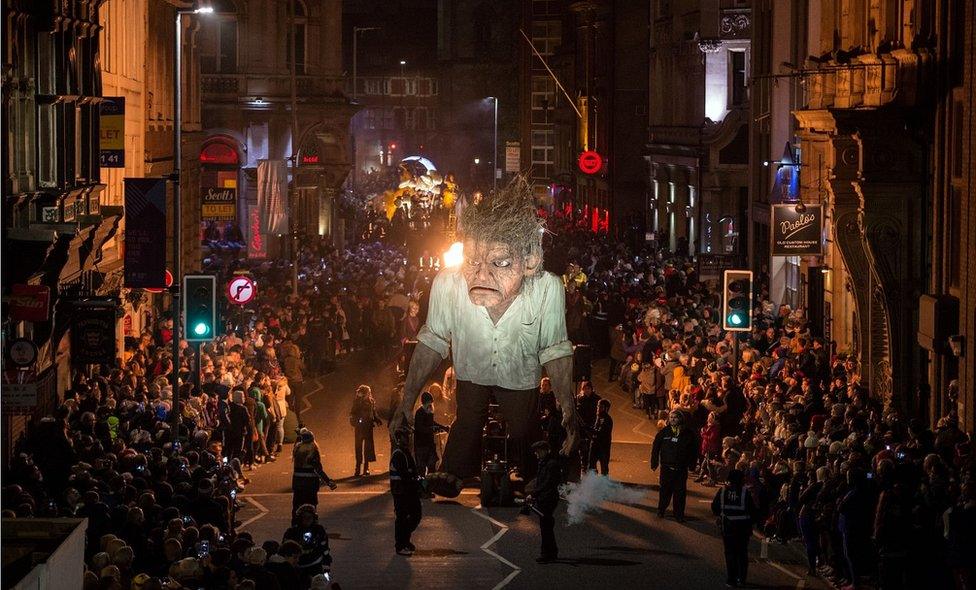
The 2017 cultural events included a parade of beasts, giants and shapeshifters
Ask on the streets of Hull and opinion is split.
"It had an impact at the time but it has not had a lasting effect," said one local woman.
"I've always loved the city because it's my home, but I've never been more proud - it has left a lasting feeling," argued a male shopper.
There's a feeling among some that the City of Culture rolled into Hull on 1 January 2017 and rolled out again on 31 December.
It may have changed wider perceptions of the city, but did it change Hull too?
"It's not like you have a magic wand and you can completely change a city, it helps it on its way to become something different in time," said Rosie Millard, former Hull 2017 chair.
"I think very important things like the sensibility of Hull - the fact that Hull is cool, whereas once it used to be laughed at, that is a real change."
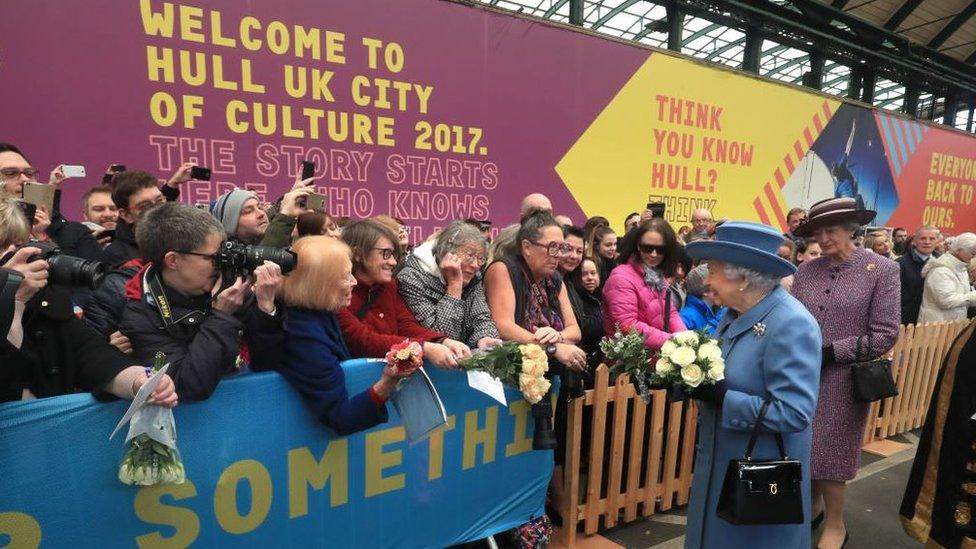
The 2017 culture year also saw a royal visit from Elizabeth II
She highlighted improvements to cultural and public spaces along with the ability to put on large touring West End Shows as a few of the lasting benefits.
Janthi Mills-Ward, Hull Truck Theatre's executive director, pinpoints City of Culture as the main driver for the big shows and plays the theatre now puts on.
"A story about Hull being performed here to sell out audiences and then going on to Stratford to be performed at the Royal Shakespeare Company, that wouldn't have been possible without City of Culture," she said.
"We still work with a lot of the theatres we collaborated with within that year, we've still got a really close connection with a theatre in Johannesburg and that also wouldn't have been possible."
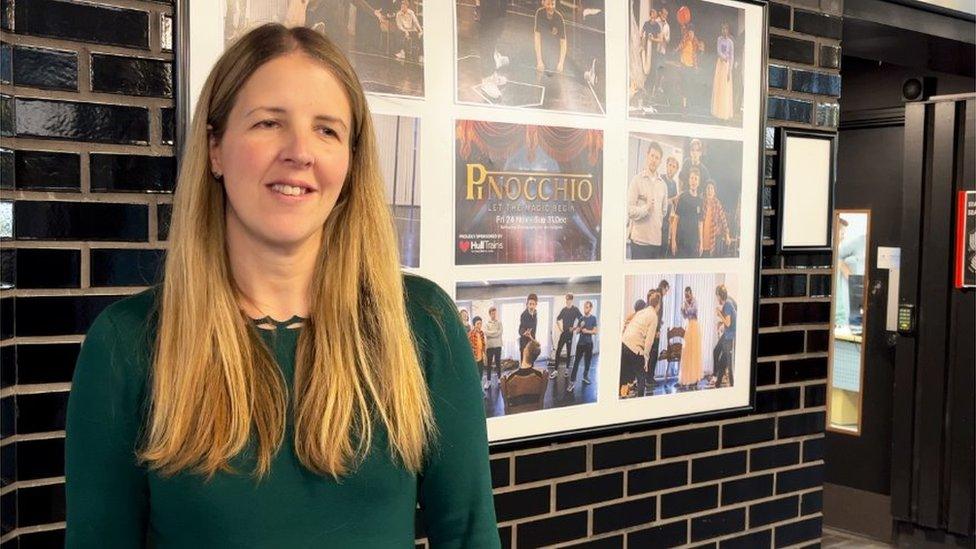
Janthi Mills-Ward, from Hull Truck Theatre, says the year provided long-lasting opportunities for collaboration
At Hull's New Adelphi Club music venue, manager Paul Sarel is a little more sceptical about its impact.
"The money came in, went out and a lot of the Hull bands didn't see any of it unfortunately," he said.
"It obviously shone a light on the city for a few years and it felt really good to be from Hull when it was announced."
He added: "The Adelphi has been here for such a long time it was never going to make much of an impact either way for us."
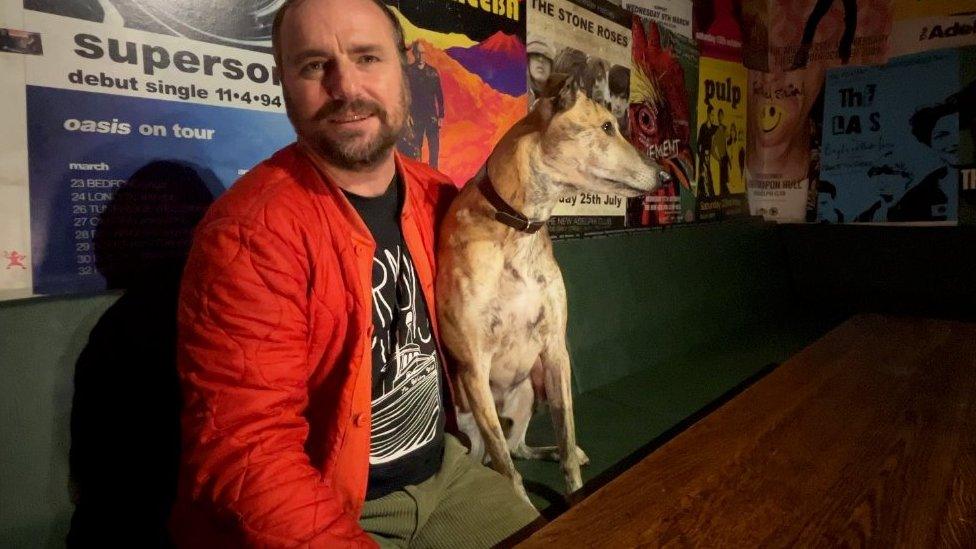
Paul Sarel, from the New Adelphi Club in Hull, feels many in the local music scene didn't benefit from the culture year
Ten years on and the city's transformation is still in progress, with a multi-million pound Hull Maritime Heritage project, new road links and an improving night time culture.
Mike Ross, Hull City Council's Liberal Democrat leader, pinpointed "confidence" as one of the main wins from the culture year.
"There was a real sense of Hull being put on the map, quite literally in the case of the BBC Weather map," he said.
"It means people want to come here and do business here in Hull and that's fantastic."
Karen Okra, from the arts group Back to Ours, said measuring the success of Hull 2017 didn't involve economics or balance sheets.
"I'm not into figures, I'm into people," she said.
"It was about renewal, emerging communities, it was about the people who made the city and we're still evolving."
She continued: "It put a spotlight on us as a city, so it was great for everyone."
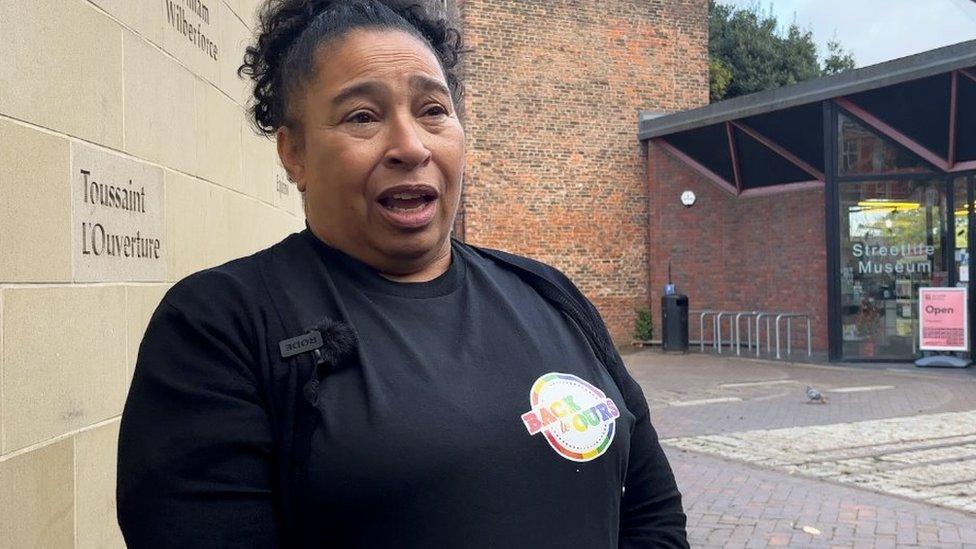
Karen Okra, from Back to Ours, says the culture tag put a "spotlight" on the city
Cultural venues in the city have faced a range of challenges since 2017, with the combination of a global pandemic and a cost-of-living crisis almost arriving back to back.
But many say Hull and its people have had a richer experience through the bad times due to their moment in becoming, and being, Britain's City of Culture.
Ms Millard, former Hull 2017 chair, concluded: "I think other cities can be inspired by Hull.
"I have no doubt that Bradford, the forthcoming City of Culture, is looking at Hull to see how we did it."

Follow BBC East Yorkshire and Lincolnshire on Facebook, external, X (formerly Twitter), external, and Instagram, external. Send your story ideas to yorkslincs.news@bbc.co.uk, external
- Published31 December 2017
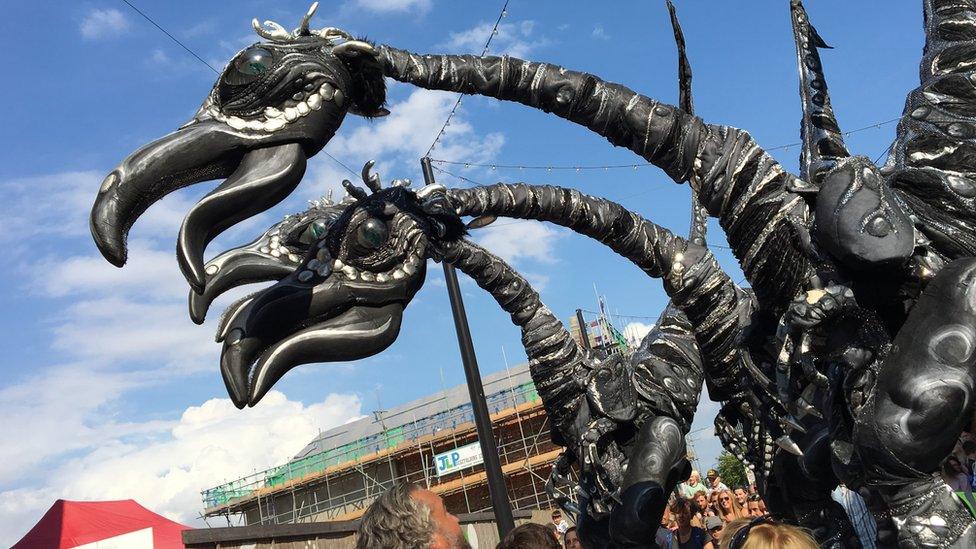
- Published29 December 2017
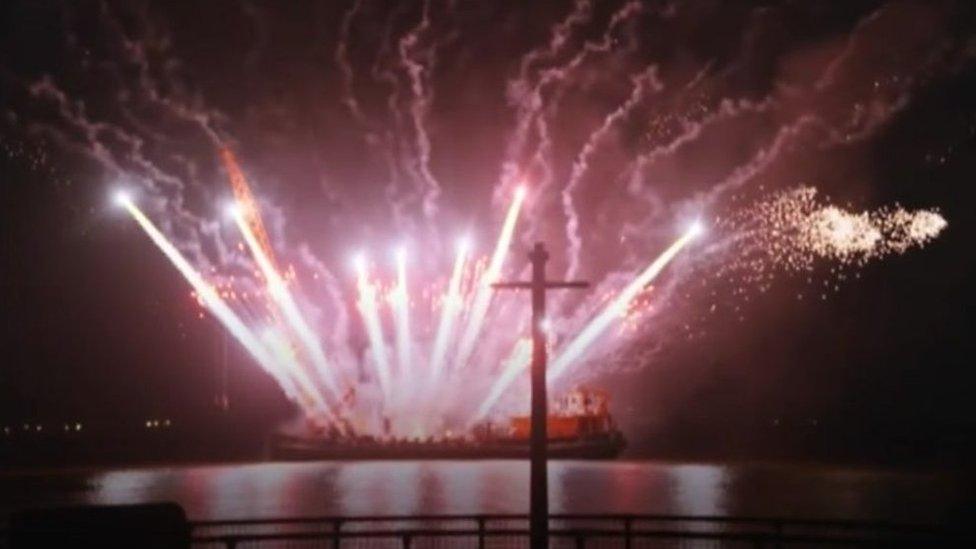
- Published28 December 2017
